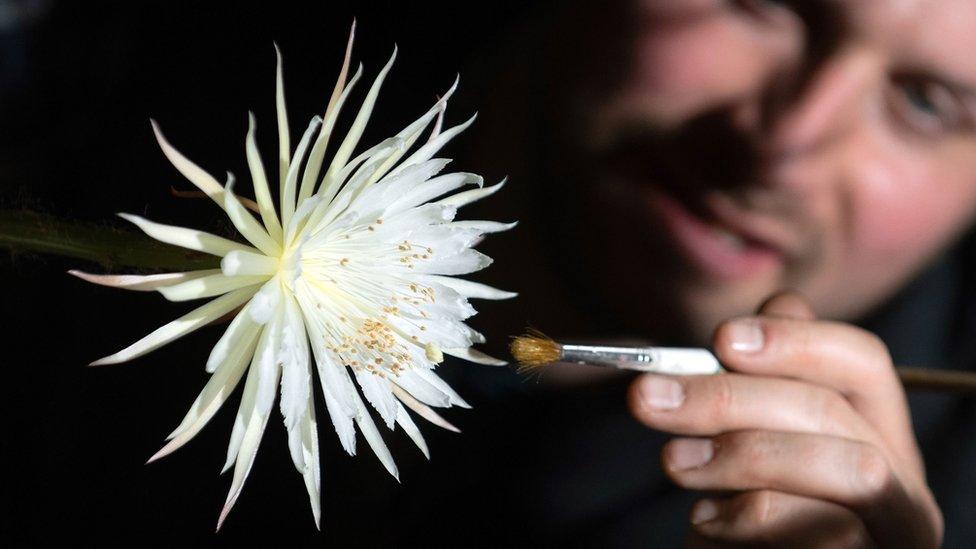Cambridge University Botanic Garden's 'Newton's apple tree' falls in storm
- Published
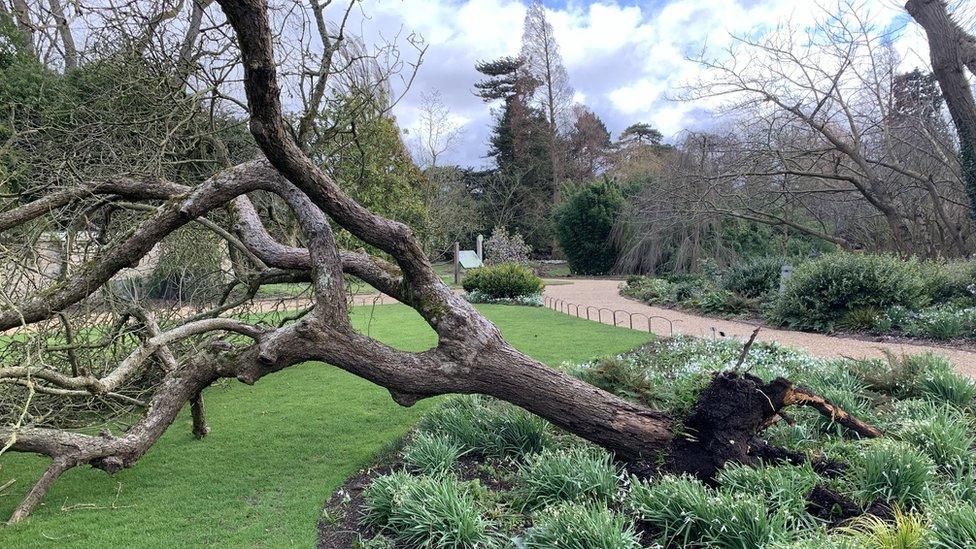
The botanic garden said the tree was a "sad loss" but a clone of it would be planted elsewhere
Cambridge University Botanic Garden has lost its "Newton's apple tree" to Storm Eunice.
Garden curator Dr Samuel Brockington said the tree was planted in 1954 and had stood at the Brookside entrance of the botanic garden for 68 years.
He said the tree was cloned from the one that led Sir Isaac Newton to discover the laws of gravity.
The botanic garden said it had a clone of the tree, external that would be planted elsewhere in the garden soon.
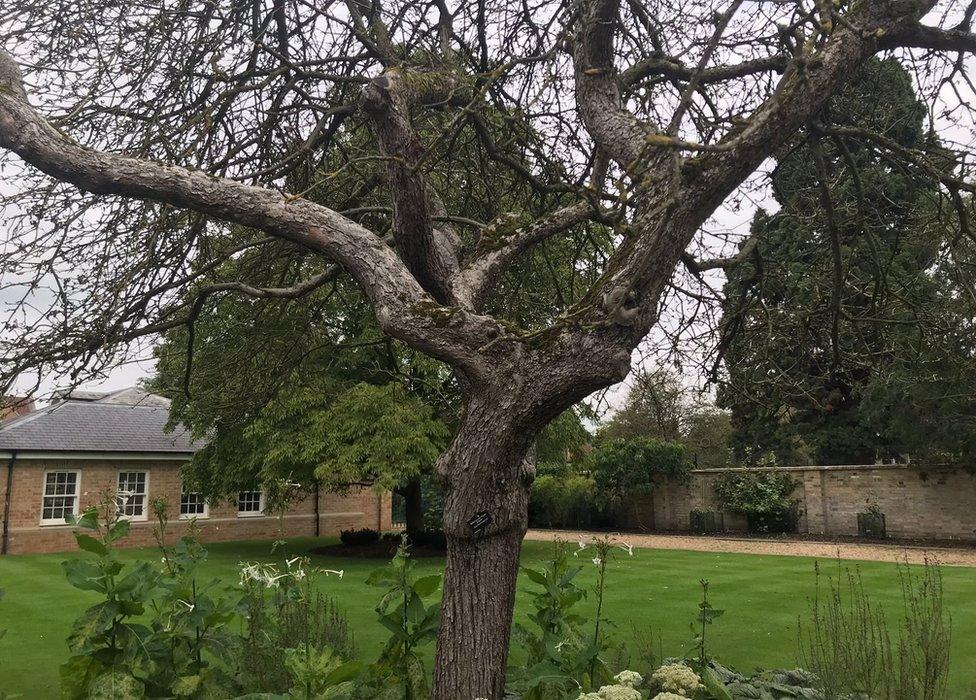
Cambridge University Botanic Garden's "Newton's apple tree" was planted in 1954
The original tree from which an apple fell, leading Newton to devise his theory of gravity, is at Woolsthorpe Manor in Grantham, Lincolnshire, external.
Even though it was blown over in a gale in the 19th Century, the tree survived and over the years has been propagated by grafting, external, which involves binding one of the shoots on to another sapling.
Allow X content?
This article contains content provided by X. We ask for your permission before anything is loaded, as they may be using cookies and other technologies. You may want to read X’s cookie policy, external and privacy policy, external before accepting. To view this content choose ‘accept and continue’.
Dr Brockington said analysis showed three trees in Cambridge - including the one at the botanic garden - were a clone of Newton's original apple tree.
He said even though it was a "sad loss" that it had fallen in Friday's storm, they were aware it was "on its way out" due to honey fungus.
As a result, they had already started their own clone of the tree, so "through the remarkable science of grafting, our scion [cutting] of 'Newton's Apple Tree' will hopefully continue in our collections", he said.
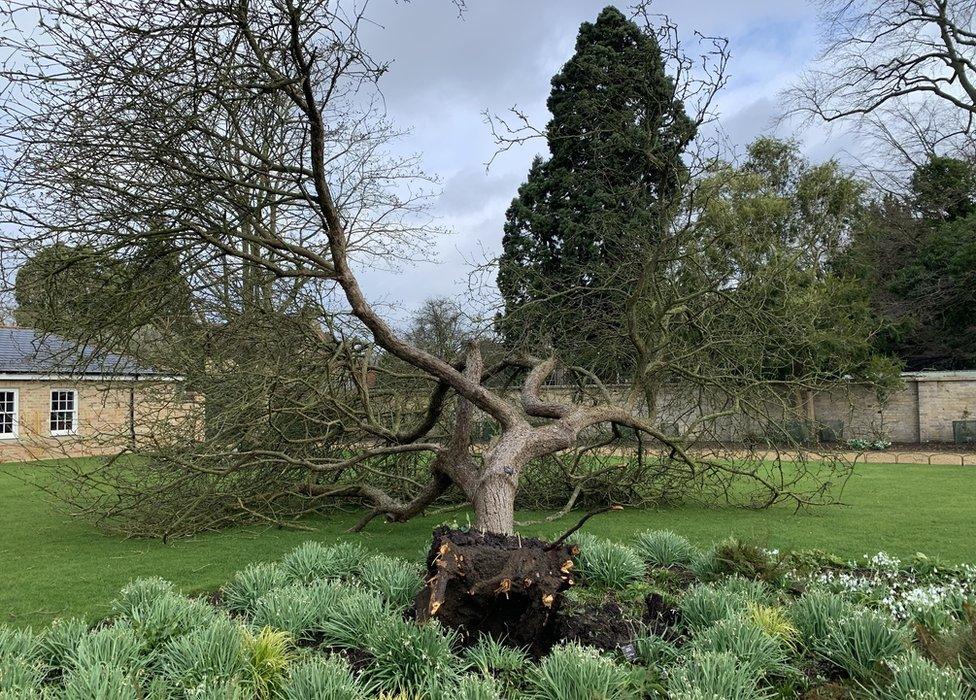
The botanic garden was aware the tree was "on its way out" due to honey fungus
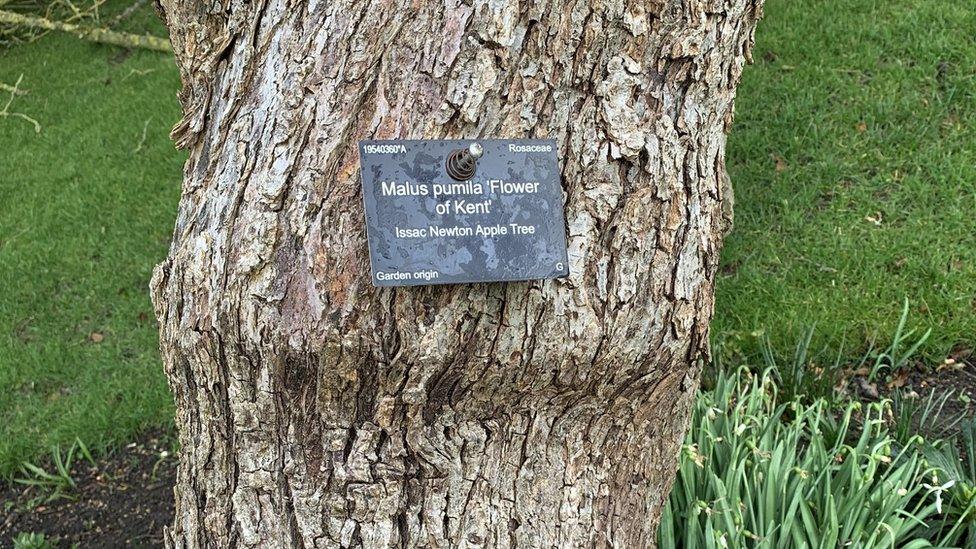
Another replica of Newton's apple tree would grow elsewhere in the garden

Find BBC News: East of England on Facebook, external, Instagram, external and Twitter, external. If you have a story suggestion email eastofenglandnews@bbc.co.uk
- Published22 January 2022
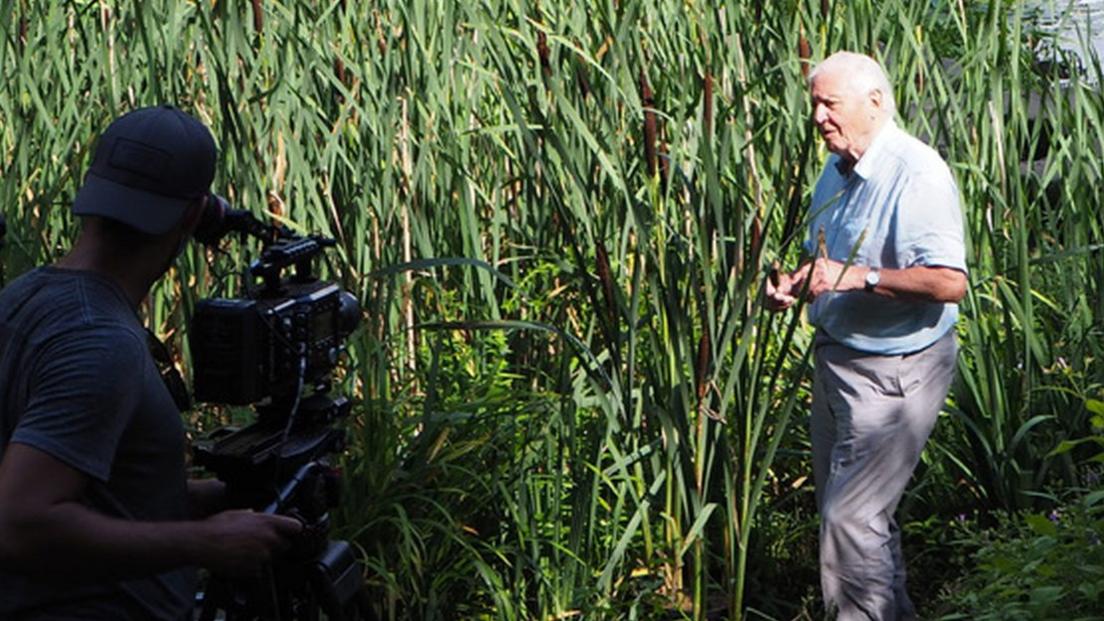
- Published7 January 2022
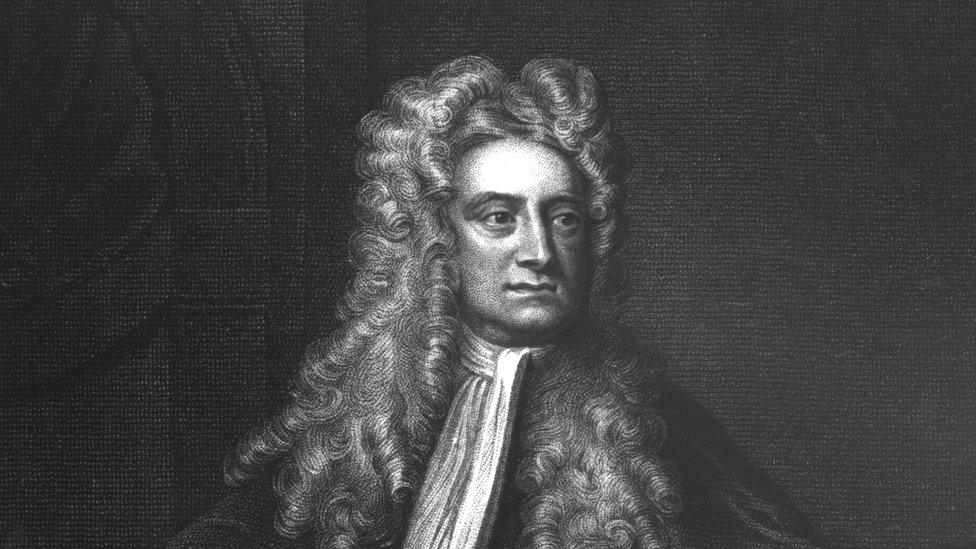
- Published10 July 2021
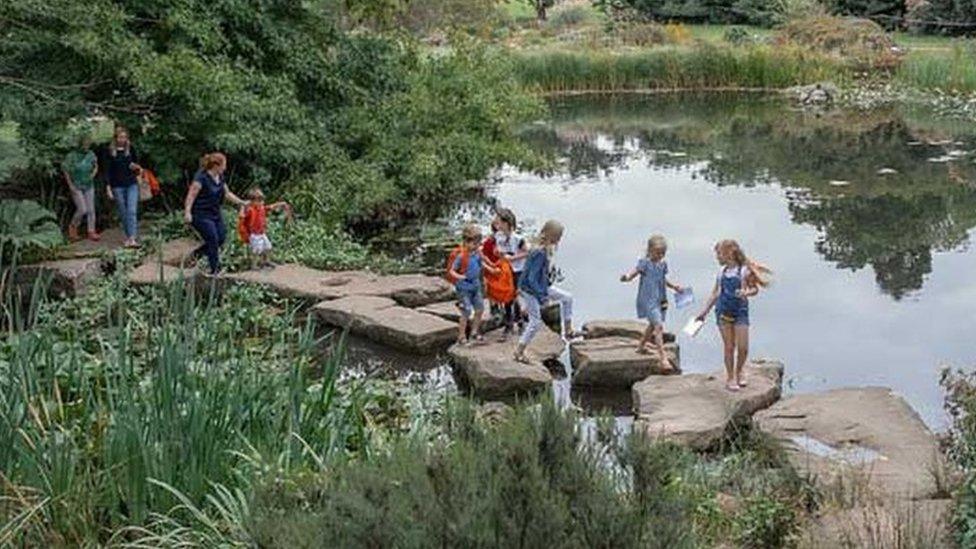
- Published21 February 2021
